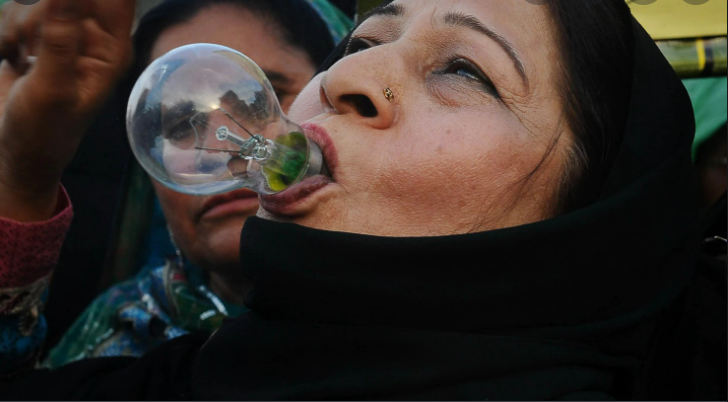Virendra Pandit
New Delhi: With Chinese electricity generating companies in Pakistan threatening to shut down power plants unless Islamabad coughed up outstanding dues to the tune of PKR 300 billion (USD 1.59 billion) by May end, the one-month-old Shehbaz Sharif government may follow the fate of its counterparts in Sri Lanka which faces civil war because of unprecedented economic crisis, shortages, and power cuts.
By demanding dues, China is pressurizing Pakistan to arrest the Baluchistan Liberation Army (BLA) terrorists who have been attacking and killing Chinese officials working on different projects of the China-Pakistan Economic Corridor (CPEC) that culminates at Gwadar Port in Baluchistan. Recently, a Baluch woman suicide bomber killed three Chinese officials in Karachi. The Chinese workforce no longer trusts the Pakistani security apparatus to provide them with safety.
Pakistan owes the Chinese independent power producers (IPPs) over PKR 300 billion, the Dawn reported.
The Chinese threat to the new Shehbaz Sharif government has come amid a multi-fold increase in demand for electricity because of the intense heatwave sweeping across Pakistan. Hours-long power cuts have already become a new normal across the South Asian country.
According to the media reports, over 25 representatives from Chinese IPPs told the Pakistan government on Monday (May 9) that if their outstanding dues remained unpaid this month, they will shut down their power plants as they are running out of money to buy expensive coal.
The three-hour-long meeting was held, in the presence of the new Planning and Development Minister Ahsan Iqbal, between Pakistani officials and the representatives of Chinese companies operating under the flagship multi-billion dollar upcoming CPEC. Iqbal assured the Chinese that his government will do all it can to make payments this month, the media reported.
But how will Pakistan repay the outstanding dues to its “all-weather friend”?
Islamabad is already on the verge of bankruptcy, its foreign exchange reserves have nosedived to just USD 11 billion, and its erstwhile benefactors—mainly China, Saudi Arabia, and the UAE—have all turned Nelson’s Eye to its frequent requests for fresh bailout packages and waiver of existing foreign debts.
The Chinese companies expressed their inability to continue power production. “It is impossible for us in view of serious liquidity issues,” they informed the Pakistani officials, Dawn said.
Because of the rising coal prices—they have quadrupled in the last few months—the Chinese IPPs require more money from Islamabad to procure coal and replenish their fast-depleting stocks. Some Chinese plants are operating at half their capacities because of low coal stocks, while government officials pressurized them to run plants at full capacity to meet the peak demand in summer.
The Chinese also complained about high taxation, a hike in fuel prices, a complex visa process for Chinese executives, and constant pressure to maximize power generation. They also reminded the Imran Khan government’s assurance and a contractual condition to create a revolving fund for automatic payment of the IPPs’ dues.

